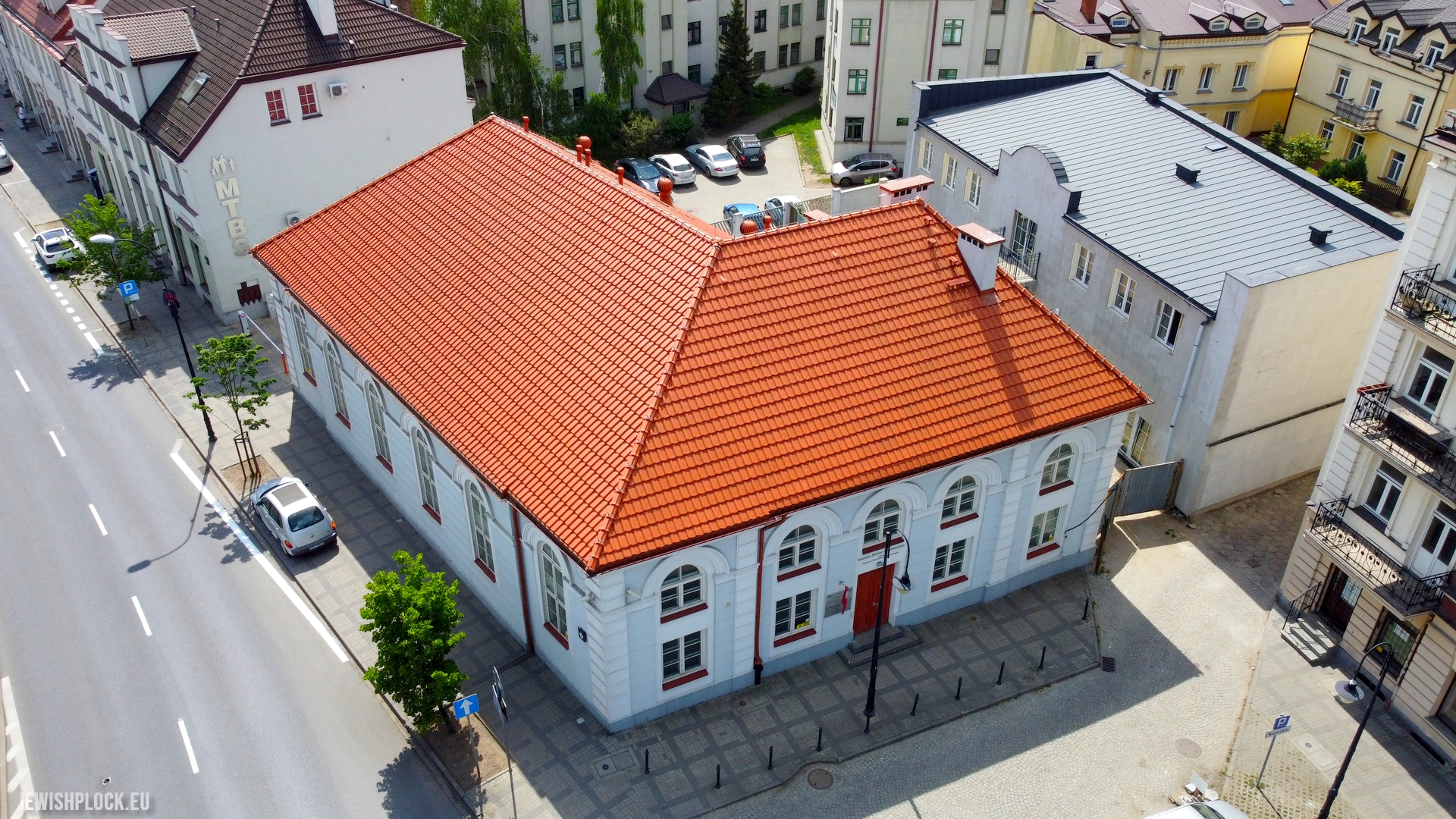10 years ago the Museum of Mazovian Jews has been opened

In 1998, the municipality of Płock purchased the building of the former synagogue at 7 Józefa Kwiatka Street from the Jewish Religious Community in Warsaw. The municipality planned to place a small museum dedicated to the Jews of Płock in the building, but also to devote this space to the Art Gallery of Płock. At the beginning of 1999, the director of the gallery at that time, Bożena Śliwińska, saw the ruined and abandoned building at Kwiatka Street. The spacious and high hall of the synagogue, after being adapted for exhibition activities, gave the perspective of presenting exhibitions that had not been possible to organize in Płock so far – presenting contemporary, spatial fabric installations, sculpture or monumental painting. It also gave the opportunity to organize monographic exhibitions of artists with great creative output, group exhibitions, as well as national and international art events.
The City Council of Płock, by resolution No. 752/XXXVI/01 of January 23, 2001, designated the building of the synagogue at 7 Kwiatka Street as the future seat of the Art Gallery of Płock. In the same year, a technical expertise of the facility and historical and scientific research were carried out as auxiliary materials for the project. In December, the public tender for the contractor, which was MAPRO, was settled. In 2002, the future seat of the Art Gallery of Płock was included in the city’s investment plan. At the same time, design work was underway. It was agreed that the City of Płock will be the investor of the construction works. However, the concept of moving the seat of the gallery to the building of the former synagogue was ultimately rejected by the mayor of Płock at that time, Mirosław Milewski, who argued that the city could not afford to invest in a new gallery. The synagogue at Kwiatka Street has been put up for sale by the municipality.
In 2005, the Płock Synagogue Association was established, which brought together people of culture and entrepreneurs – people not related to politics. A group of social activists decided to purchase the building at 7 Kwiatka Street, renovate it and establish the Museum of Mazovian Jews. The association prepared a renovation project, obtained support from sponsors and funding from the European Union (7.7 million PLN out of the total investment cost of 9 million PLN).
Thanks to the commitment and work of Roman Góralski, Jerzy Janiak, Konrad Jaskóła, Hanna Witt-Paszta, Fr. prof. Ireneusz Mroczkowski, prof. Janusz Zieliński, prof. Bogdan Grzeloński, Zofia Celińska, Anna and Wiktor Bramski and Marek Mokrowiecki, on March 14, 2013, the Museum of Mazovian Jews began its activity (the museum is a department of the Mazovian Museum in Płock and its activities are financed from the funds of the City of Płock and the Self-Government of the Mazovian Voivodeship).
In this way, the dream of Izrael Gerszon Bursztyn – the chairman of the board of the Jewish Committee in Płock, who after World War II made unsuccessful attempts to turn the surviving building of the Great Synagogue (today nonexistent) into a monument-mausoleum, came true.
You can also read about the history of the synagogue at 7 Kwiatka Street here (link)















